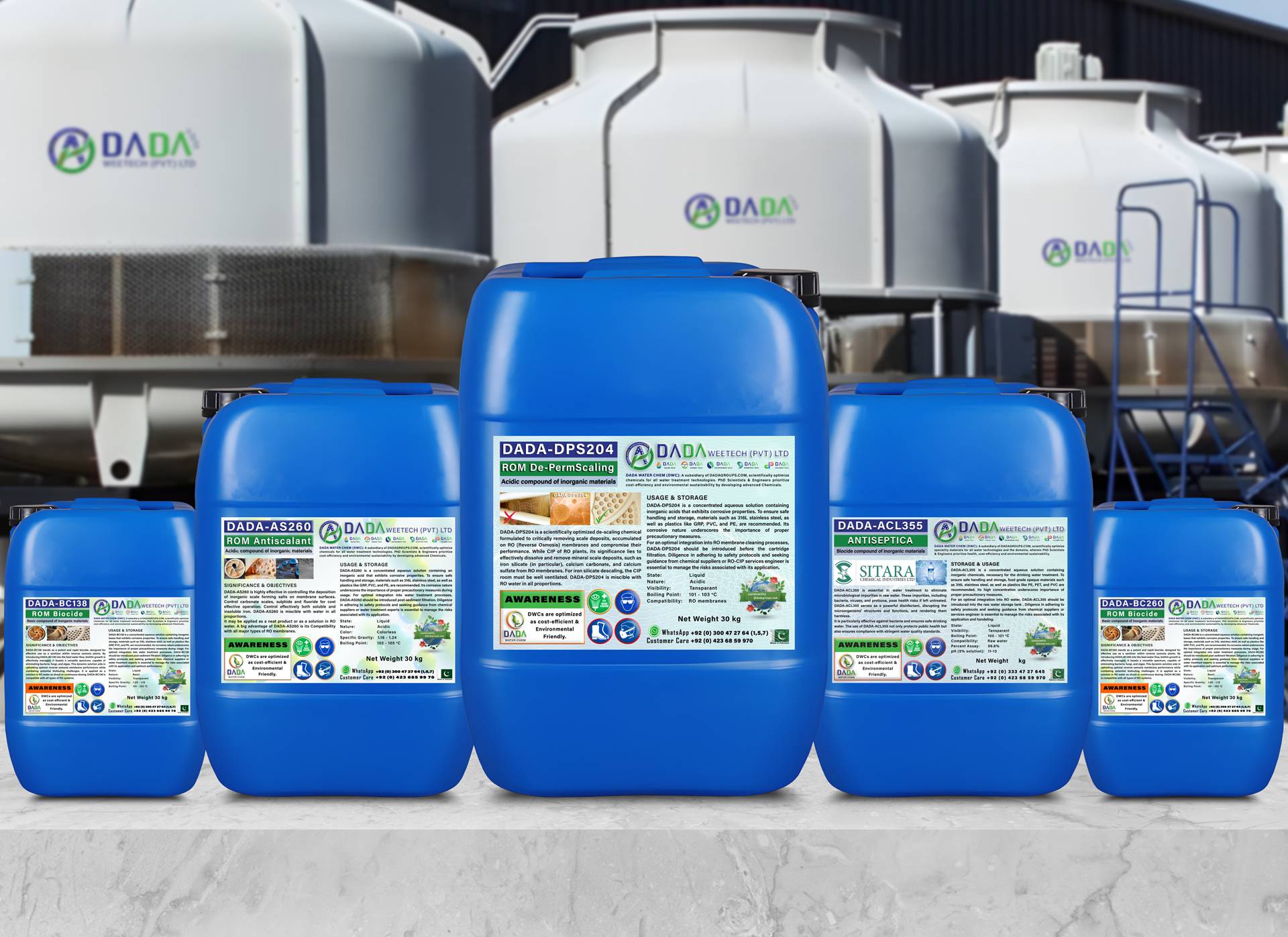Water treatment chemicals are substances used to improve the quality of water by controlling and eliminating contaminants, impurities, and microorganisms. These chemicals play a crucial role in various water treatment processes, ensuring that water is safe for consumption, industrial use, and environmental discharge. Here’s a brief overview:
1. Coagulants and Flocculants:
Purpose: Aid in the removal of suspended particles.
How They Work: Coagulants cause particles to clump together, and flocculants help form larger flocs for easier removal.
2. Disinfectants:
Purpose: Kill or inactivate bacteria, viruses, and other harmful microorganisms.
Common Types: Chlorine, chlorine dioxide, ozone, UV light, and bromine.
3. pH Adjusters:
Purpose: Control and maintain the pH level of water.
Common Types: Acids (e.g., sulfuric acid) for lowering pH and bases (e.g., sodium hydroxide) for raising pH.
4. Antiscalants and Scale Inhibitors:
Purpose: Prevent the formation of scale, which can occur due to the precipitation of minerals.
How They Work: Bind to minerals and prevent them from precipitating, thus avoiding scale buildup.
5. Corrosion Inhibitors:
Purpose: Protect metal components in water systems from corrosion.
How They Work: Form a protective layer on metal surfaces, preventing contact with corrosive elements.
6. Activated Carbon:
Purpose: Adsorb and remove organic contaminants, chlorine, and some heavy metals.
How It Works: The porous structure of activated carbon traps impurities through adsorption.
7. Biocides:
Purpose: Control the growth of algae, bacteria, and fungi in water systems.
Common Types: Chlorine, bromine, and various non-oxidizing biocides.
8. Oxygen Scavengers:
Purpose: Remove dissolved oxygen from water to prevent corrosion in boiler systems.
How They Work: React chemically with oxygen, reducing its concentration in the water.
9. Flooding Agents:
Purpose: Aid in the removal of excess water during certain water treatment processes.
Common Types: Calcium chloride and other hygroscopic salts.
10. Resin Cleaners:
– Purpose: Clean ion exchange resins in water softeners and demineralization systems.
– How They Work: Remove accumulated impurities from the resin beads, restoring their effectiveness.
In summary, water treatment chemicals are diverse and serve specific functions in ensuring the safety, quality, and efficiency of water in various applications, from municipal water treatment plants to industrial processes and beyond. Proper selection and application of these chemicals are crucial for effective water treatment.



